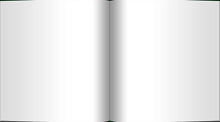|
|
You are not currently logged in. Are you accessing the unsecure (http) portal? Click here to switch to the secure portal. |
Difference between revisions of "Hans Endter Fechtbuch"
m (Updated reference from Wallhausen to Acutt) |
|||
| Line 38: | Line 38: | ||
| below = | | below = | ||
}} | }} | ||
| − | The '''Hans Endter Fechtuch''' is a [[nationality::German]] [[fencing manual]] created by Hans Endter some time before 1562.{{cn}} It was previously held by the [[Germanisches Nationalmuseum]] in Nuremberg, Germany; it was lost during World War II, and its current location is unknown. The manuscript was analyzed by [[Carl Michael Wiechmann-Kadow]] in the 19th century, from whom we know that it is a fragmentary copy of [[Johannes Liechtenauer]]'s [[Recital]] on the longsword; Wiechmann-Kadow speculated that it was based on the [[ | + | The '''Hans Endter Fechtuch''' is a [[nationality::German]] [[fencing manual]] created by Hans Endter some time before 1562.{{cn}} It was previously held by the [[Germanisches Nationalmuseum]] in Nuremberg, Germany; it was lost during World War II, and its current location is unknown. The manuscript was analyzed by [[Carl Michael Wiechmann-Kadow]] in the 19th century, from whom we know that it is a fragmentary copy of [[Johannes Liechtenauer]]'s [[Recital]] on the longsword; Wiechmann-Kadow speculated that it was based on the [[Starhemberg Fechtbuch (Cod.44.A.8)|Starhemberg Fechtbuch]],{{cn}} but this may simply be because he was not aware any other copies of the Recital. |
== Provenance == | == Provenance == | ||
| Line 72: | Line 72: | ||
|- | |- | ||
| <p>{{red|b=1|This is the Foreword. Hans Liechtenawers Fight Book}}</p> | | <p>{{red|b=1|This is the Foreword. Hans Liechtenawers Fight Book}}</p> | ||
| − | | <p><small>[2r]</small> {{red|b=1|Dis ist die vorred. Hans liechtenawers fechter buoch.}}<ref>The subsequent preface is almost the same as in the [[ | + | | <p><small>[2r]</small> {{red|b=1|Dis ist die vorred. Hans liechtenawers fechter buoch.}}<ref>The subsequent preface is almost the same as in the [[Starhemberg Fechtbuch (Cod.44.A.8)|Starhemberg Fechtbuch]], only with slightly different orthographics. At the bottom of the page is a short horizontal rule with knights fighting whilst riding on goats.</ref></p> |
|- | |- | ||
Revision as of 20:49, 8 November 2020
| Hans Endter Fechtbuch | |||||
|---|---|---|---|---|---|
| Location unknown | |||||
 (No scans available) | |||||
| |||||
| |||||
| Type | Fencing manual | ||||
| Date | before 1562 | ||||
| Language(s) | Early New High German | ||||
| Author(s) | Johannes Liechtenauer | ||||
| Compiler | Hans Endter | ||||
| Scribe(s) | Hans Endter (?) | ||||
| Illustrator(s) | Unknown | ||||
| Size | 3 folia | ||||
| Format | Double-sided; text with one miniature per side | ||||
The Hans Endter Fechtuch is a German fencing manual created by Hans Endter some time before 1562.[citation needed] It was previously held by the Germanisches Nationalmuseum in Nuremberg, Germany; it was lost during World War II, and its current location is unknown. The manuscript was analyzed by Carl Michael Wiechmann-Kadow in the 19th century, from whom we know that it is a fragmentary copy of Johannes Liechtenauer's Recital on the longsword; Wiechmann-Kadow speculated that it was based on the Starhemberg Fechtbuch,[citation needed] but this may simply be because he was not aware any other copies of the Recital.
Contents
Provenance
Contents
| 1r - 3v |
|
|---|
Gallery
Additional Resources
- Wiechmann-Kadow, Carl Michael. Johann Liechtenauers Fecht-kunst. Anzeiger, NF 3, 1856. p144.
References
- ↑ Beneath is a small coat of arms with a duck swimming.
- ↑ There is then a small illustration of two knights in armour fighting with long swords.
- ↑ A coat of arms (without helm decoration) is shown comprising four red and yellow fields, a yellow cross with a crutch.
- ↑ The subsequent preface is almost the same as in the Starhemberg Fechtbuch, only with slightly different orthographics. At the bottom of the page is a short horizontal rule with knights fighting whilst riding on goats.
- ↑ The Zorenhawe, etc. Including two knights, one of whom wards off the blow of his opponent whilst on bended knee.
- ↑ Below are two knights whose swords form a cross.
- ↑ Contains no text, only a painting depicting two knights on horseback, who come to blows with swords held up at one another.
Copyright and License Summary
For further information, including transcription and translation notes, see the discussion page.
| Work | Author(s) | Source | License |
|---|---|---|---|
| Images | |||
| Translation | Jay Acutt | Private communication | |
| Transcription | Carl Michael Wiechmann-Kadow | Index:Hans Endter Fechtbuch |
